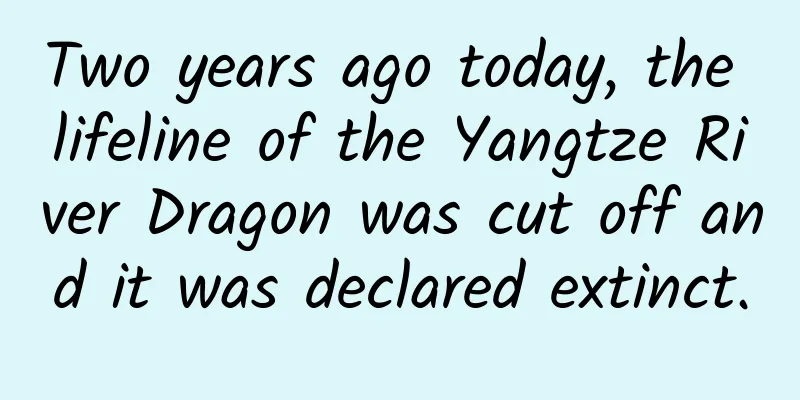If you suffer from kidney stones, you must pay attention to these 5 points, otherwise be careful that the stones will become bigger!

|
Did you know? Today is #WorldKidneyDay#. The International Society of Nephrology and the International Kidney Foundation Federation jointly proposed that the second Thursday of March each year be designated as World Kidney Day. Today is the 17th! The incidence of chronic kidney disease is increasing worldwide, and kidney stones are a common urinary system disease. For patients with mild symptoms, as long as they are well controlled, the impact on their lives will not be great. However, if treatment is not timely and attention is not paid, it is easy to cause urinary tract obstruction, which in turn causes urinary tract infection, and even damages the patient's kidney function and causes uremia. Therefore, for people who already have kidney stones, you must pay attention to the following 5 points in your life. *The same applies to preventing kidney stones in daily life* 1. Do not consume large amounts of protein foods A high-protein diet is the diet method adopted by many people who are losing weight. This method intakes a high proportion of protein, and the energy supply ratio of protein exceeds 20%. This diet does help with weight loss and blood sugar control, but a long-term high-protein diet is harmful to the body. When we eat protein foods, it increases the glomerular filtration rate and renal blood flow. Different sources of protein have different effects on it. Animal protein has the most obvious effect, followed by dairy protein, and plant protein has the least effect. In addition, studies have shown that a high-animal protein diet is one of the risk factors for the formation of calcium oxalate, increasing the risk of kidney stones. For people with impaired kidney function or those who already have kidney stones, a high-protein diet can affect kidney function and aggravate the condition. Furthermore, protein contains a large amount of amino acids and glycol esters, which promote the excretion of uric acid and increase the risk of stone formation. Therefore, patients who already have kidney stones or other kidney diseases should pay attention to controlling their protein intake, especially animal protein, and avoid a high-animal protein diet. 2. Be careful when eating foods high in oxalic acid Most kidney stones are calcium oxalate stones, so you should be extra careful about foods that are too high in oxalic acid. If you want to eat them, be sure to blanch them first to remove most of the oxalic acid, such as spinach, amaranth, water spinach, wild rice stem, winter bamboo shoots, etc. 3. Drink less or no sweet drinks. Many studies have shown that the intake of sweet drinks and carbonated drinks is related to kidney stones. It is recommended that patients with kidney stones drink more water, which helps promote the excretion of stones. It is recommended that women and men drink 2000 ml and 3000 ml of boiled water respectively. 4. Don’t drink strong tea. Strong tea contains a high amount of oxalic acid, which increases the risk of calcium oxalate stones. Although some studies have shown that tea contains tea polyphenols, caffeine and other ingredients, and drinking tea may help prevent stones, the specific concentrations need further research. After all, strong tea will affect the absorption and utilization of minerals, so it is recommended not to drink strong tea. 5. Eat less animal offal and eat seafood in moderation. Animal offal and seafood are high in purine, which will increase the excretion of uric acid and form uric acid stones. Patients with kidney stones should eat less of them. For healthy people, animal offal should be eaten less, and it is recommended to eat 2 to 3 times a month, 25 grams each time, such as pork liver the size of half an egg; as for seafood, 40 to 75 grams a day is enough, such as seven or eight large shrimps, or fish meat in the palm of one hand. According to the data in the "Chinese Food Composition Table", seafood with higher purine content includes: mackerel, anchovies, sardines, caviar, mackerel, loach, sea bass, opium fish, sturgeon (cooked), cod (grilled), etc. Studies have found that patients who eat a hypertrophic diet, a high-protein diet, consume too much animal offal, drink beverages frequently, and consume too much seafood have a high incidence of stones, while patients who eat a high-calcium diet and frequently consume fruits and soy products have a low incidence of stones. Therefore, in addition to the above 5 points, there are 3 points that are recommended: 1. Pay attention to calcium supplementation. We usually recommend that you pay attention to calcium supplementation, because adequate calcium intake plays an important role in preventing osteoporosis. Many people may worry whether taking too much calcium will cause kidney stones. The answer is: no. Studies have found that long-term adequate calcium and vitamin D supplementation is safe, and no persistent increase in urine calcium levels has been found, nor has the risk of kidney stones been increased (the calcium content in the observation experiment was 1200 mg/day and the vitamin D3 was 250 international units/day, and the observation lasted for a total of one year). For calcium supplementation, it is recommended to drink 300 ml of milk, eat 50 grams of soybean products (such as 5 mahjong-sized pieces of northern tofu), and about 300 grams of green leafy vegetables (such as rapeseed) every day. When choosing calcium supplements, it is recommended to choose small doses and take them multiple times, such as calcium tablets containing 300 mg of calcium per tablet. Vitamin D supplementation is 10 micrograms per day, which is 400 international units. 2. Eat more fresh fruits and vegetables. Fresh fruits and vegetables are rich in dietary fiber, which can block the crystallization of calcium oxalate and inhibit the occurrence of stones. 3. Eat more soy products. After processing, soy products can not only supplement calcium, but also reduce oxalic acid content and increase calcium salt content. However, it is recommended not to eat too much lactone tofu. If you like to drink soy milk, it is best to dilute it and not drink too thick soy milk. Summary: The kidneys are important metabolic organs in the human body, so we must protect their health at ordinary times; don’t worry about people who already have kidney disease, just follow the doctor’s treatment and pay more attention to your diet; in addition, diabetic patients must have regular check-ups. Do you know what else you need to pay attention to when it comes to kidney stones? Let me remind you~ References: [1] Li Jing, Yang Lijun, Chen Fan, et al. A brief discussion on the effects of high-protein diet on kidneys[J]. Sichuan Journal of Physiological Sciences, 2013, 35(3): 128-131. [2] Huang Jianguo, Liu Huiqin. Analysis of the relationship between dietary factors and kidney stones[J]. Diet and Health Care, 2021, (15): 277. [3] Huang Peiling, Qin Qiwen, Cao Xiuwen, Wei Rizhou. Observation on the effect of calcium supplementation on urinary calcium level and incidence of kidney stones[J]. Journal of Youjiang Medical College for Nationalities, 2009, 31(03): 384-386. |
<<: Want to fly to the sky and walk shoulder to shoulder with the sun? China has a plan!
Recommend
Why has the radio and television industry fallen to a state of decline even worse than Chinese football?
I know that the following words will certainly le...
China's mobile internet monthly active users decline for the first time
On July 23, QuestMobile, a research organization ...
Japanese media: Volvo Cars may recruit new shareholders other than Geely
Japanese media reported that Swedish luxury car c...
Excel Business Dashboard Course: Interactive Data Analysis Dashboard_Liu Wanxiang
Applicable people: data analysts and professional...
Peking University: Study finds that the risk of dementia in the elderly may increase due to vision problems
Older adults with untreated vision problems may h...
Analyzed 2,000 creative posters to find out how to quickly master the routine of making posters
Since ancient times, deep affection cannot be ret...
WeChat Tips: As long as you have used the web version of File Transfer Assistant, you can use the web version of WeChat
IT Home December 27 news, thanks to the enthusias...
Screen prices fall to the lowest level in two years. Are good days coming for TV manufacturers?
Panel prices, which have been falling since the s...
What time does the 2022 315 Gala start? What is the theme? Attached the latest broadcast time
March 15th of every year is Consumer Rights Prote...
Download the "Middle School Entrance Examination Composition" from Luosi Chinese
Introduction to the resources of Luosi Chinese La...
Xiaohongshu Enterprise Account Certification Application Guide
According to the "2020 Xiaohongshu Double El...
Deep Sea Cemetery: The Death of a Whale
At the northern tip of New Zealand's South Is...
Product operation and promotion: plan a real event!
Planning is also a basic ability of operation. No...
LeEco and Evergrande: Two Ecosystem Benchmarks in China
Evergrande and LeTV are two great examples of cou...









